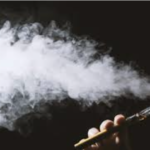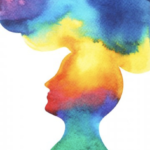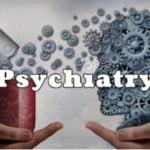“I’m terrified that my 17 year old daughter has a secret life, and might hurt herself - or worse.”
Mrs. B called in a panic. Her daughter (let’s call her Rachel) is a senior at a local high school. Her parents had become suspicious of her withdrawal from communicating with them, and her long hours locked in her room "to study", even though her grades were falling fast. Yes, Covid has made everything more difficult, but this was alarming them deeply. Rachel had explanations, but her phone indicated otherwise. She searched for self harming methods. She followed other girls talking about techniques to harm themselves. She joined websites that romanticized violence, darkness and vengefulness. Her parents found two separate knives that Rachel had purchased online, and then insisted she show them her arms and legs. They saw the fresh scars of self inflicted wounds on their beloved daughter. Indeed, Rachel had created a secret life for herself.
Rachel is not alone. The decline in mental health among teenagers has intensified rapidly, causing the US Surgeon General to warn of a “devastating mental health crisis” among adolescents. We are witnessing a national emergency with soaring rates of depression, self harm and suicide. Is this the fault of social media? In my opinion, social media has a role to play, but it is not the cause.
Our kids are being raised in an increasingly insular place. Physical activity, exercise and sports participation is declining. In person connection with social groups has been dropping. Our teens are sleeping less, and are less inclined to pay attention to their physical health and diet. At all ages, our worst fears, thoughts and memories arise just when we are about to sleep. Or worse, they wake us in the night when there are no distractions or people to comfort us. We’re just alone with our thoughts.
This is the new world of our teenagers. Without connections, goals, and physical activity, there is a kind of internal implosion occurring. This is exacerbated by puberty, which now starts a full two years earlier than it did in the 1990’s. Neuroscience tells us that, when puberty hits, the brain becomes hypersensitive to social and hierarchical information and reactions. We’re encouraged to compare ourselves to photoshopped and filtered others. We’re encouraged to explore our gender identities, our self definitions, our sexuality. Who am I? Who are my friends? Where do I fit in? How can a teenager be expected to answer these questions, or even navigate the topics, in the face of isolation, hormone storms and physical depletion? It’s more than a young brain can process, and leaves our young alone, disconnected, overwhelmed and pushed into their own heads for ‘safety’.
During our first visit, Rachel said to me “My brain is like a black hole that I can’t climb out of. I am numb but I feel like I'm disintegrating at the same time. I'm so alone, that I think of dying all the time.” She was bereft of people to speak to, people to understand her, a real community. Her interests and participation in the outside world were declining, replaced by overstimulation by media sources that overwhelmed her. She was left hopelessly in pain. “Sometimes I prefer the pain of cutting myself to the pain of feeling like I’m not even alive.”
What can be done? Let’s understand the signs of an adolescent struggling with anxiety and depression. Let’s create a safe space to start a discussion with an adolescent who is struggling. It’s important that the teenager does not see mental health struggles as “a weakness“, but as a sign that real connection, honestly and work is needed. Yes, therapy has a role to play - but only an experienced and caring therapist, and a psychiatrist who does not simply medicate the symptoms but actually treats the patient with care and patience. Within our homes, we need open and frank discussions about all of this as well as what constitutes good daily practices for mental and physical health.
This is a beginning. Compassion, deep listening and connection are the lights that can begin to dissolve the black holes our teens are falling into.



